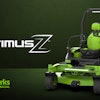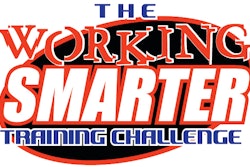If you want to maintain positive sales momentum this year, there are three essential questions you should ask your best customers. The answers will probably open your eyes to a few things, and will undoubtedly help you sharpen your sales and marketing strategy so you can maintain and continue growing your business.
“Where does the majority of your revenue come from?” asks consultant Jeffrey Scott. “For most companies, the majority of business and referrals come from a handful of clients—maybe up to 30 clients at most. Pinpoint who they are—and call them prior to spring. I’m willing to bet that you’ll get new business from at least one out of every 10 clients.”
QUESTION 1: How did you hear about me?
When asked what their primary source of new business is, most contractors point to “customer referrals” without a second’s hesitation. But when asked who or what specifically is providing the referrals, there’s a bit of a pause.
“The first question you should ask your top customers is, ‘How did you hear about my company?’” Scott says. “If they saw your ad in the Yellow Pages, that’s great. But if they say someone referred them to you, politely ask for specifics. Was it a relative? A neighbor? Someone from the chamber? Can I get a name?”
Scott says the answers you hear will usually fall into one of a couple “referral buckets” which might include specific clients, friends, neighbors, clubs, the church, other contractors, etc. Your set of referral buckets will be unique to you. So when you do this exercise, you get a much clearer picture of where your business is really coming from. Then you can sharpen your sales strategy to work these areas more aggressively and maybe expand on them.
“I was consulting with a contractor who identified the local church and Rotary Club as his two main referral generators,” Scott relates. “We devised a plan to market to these groups more aggressively. We talked about doing some charitable maintenance work for the church and through the Rotary Club. We talked about making sure he got as many people as possible from these two groups to sign up for his free email newsletter. And we talked about targeting the other four Rotary Clubs within his market area.”
The point is that, when you identify who your primary referral generators are, you want to reach out to them frequently, whether it’s a phone call, personal visit, email newsletter, or whatever. “Keep going back to them with a message that’s not sales-related,” Scott advises. “Be a teacher, giver and resource, and make them feel like they really matter to you.”
QUESTION 2: Why did you hire me?
After you find out why a customer decided to inquire about your services, ask them what you did that gave them the confidence to hire you.
“Their answers will help you understand how effective your sales process is,” Scott points out. “Maybe they liked the fact that you got back to them quickly, your ideas were clearly explained or your proposal was clear, yet thorough.”
This question also helps you find out what matters most to customers—and it stands to reason that you’d then make sure you and your staff are consistent and well-trained in these areas. “You need to know so you can repeat the process and win more customers,” Scott says.
QUESTION 3: Why do you stay with us?
The final question you should ask your best customers is: “Why do you continue to use our services?” You could also ask, “If you moved next year and had to stop using us, what would you miss most about us?”
This question is critically important because it helps you zero in on what’s called your value proposition, which is composed of those things that make you uniquely desirable to your best clients. “Your value proposition is the most important part of your marketing message,” Scott reminds.
A real-life example of how this works
How does all of this fit together? One contractor Scott consults for put together a list of his best clients. He then asked them the three magic questions—and came up with the following:
He identified that his best clients lived in certain zip code areas on large tracts of land.
When he called those clients up, he learned that they found out about him from referrals from one of the town volunteer clubs he belonged to, from his church, from a few specific contractors from other towns, and from direct marketing letters he mails out.
The clients told him they signed up with him because of his ability to answer questions with knowledge. This showed itself on his website, when he visited the client, and by how he wrote and presented his proposal—in person. The clients said they often chose him after having a bad experience with a less professional company.
The one thing all of the clients would miss if they ever had to change companies is his staff, which is friendly, more knowledgeable and very service-oriented.
This contractor’s marketing strategy moving forward is to raise his profile much further with his local organizations, increase contacts with non-competing contractors, and increase his use of direct mail.
With his mailings he will target certain zip codes and neighborhoods in order to build up density and take advantage of his current visibility with his trucks and job signs. His marketing message will stress his “knowledge and expertise,” along with his “professional, service-oriented” approach. He will talk about how everyone loves his key staff and the service they get. He will use client testimonials to support these messages.
Your strategy will be different from this contractor’s, because it will be based on what your clients tell you. The key is to get on the horn and call your best customers. Ask them the three magic questions, strengthen your relationships, and use their answers to sharpen your marketing message so you can sell more effectively.




















